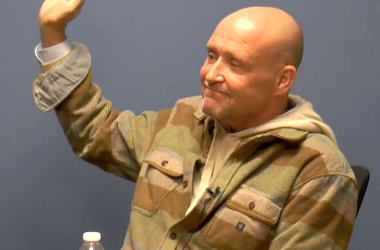 Ginger McCall (Courtesy/Oregon Secretary of State)
Ginger McCall (Courtesy/Oregon Secretary of State)
Oregon’s Public Records Advisory Council meets Wednesday, Jan. 22, to discuss a legislative proposal to carve out its place as an independent agency and office under the governor.
A lobbyist for the League of Oregon Cities has proposed amendments that could leave the council and public records advocate with less authority.
Wednesday’s meeting begins at 1:30 p.m. in the State Archives Building, 800 Summer St. N.E., Salem. The council will hear an update on Senate Bill 1506, the proposal by non-voting council members state Sen. Kim Thatcher, R-Keizer, and state Rep. Karin Power, D-Milwaukie. That bill would solidify the independence of the council and the public records advocate. It also allows the council and public records advocate to support and oppose public records law legislation and ask lawmakers to introduce legislation on their behalf.
Scott Winkels, a council member and lobbyist for the League of Oregon Cities, proposed amendments to roll back the council’s powers and strip the public records advocate of voting power.
“We’ve voiced some concerns with the bill that was proposed starting back in the emergency session that was called after the resignation of the previous advocate,” Winkels said. “We’re cognizant that most amendments and bills don’t go through as written, and we just want to have a conversation about an alternative way.”
Winkels said the league’s primary issue with the bill is that independent agencies lack accountability. He cites problems with previous administrations of the Oregon Liquor Control Commission as a reason to avoid creating a similar situation where a board and appointed leader have unilateral control. He also argued that the public records advocate and council already have the ability to support and oppose legislation.
“We agreed to a certain management structure when we supported the bill that created all this,” Winkels said. “Keep in mind, cities are the only local government that agreed to actually participate in the mediation process at any level, so we feel that we’ve played ball during the crafting of this and are now looking at significant management changes. It’s not a bad thing to pull back and spend some more time in analysis considering this session is only 35 days.”
‘Weaken the council’
But former Public Records Advocate Ginger McCall, who resigned last fall after just 18 months on the job, citing undue pressure from the governor’s office, submitted testimony ahead of the council’s meeting saying that the league’s amendments would be detrimental to the council’s mission and authority.
“The league has proposed to strip all of the council’s proposed language — including explicitly removing the independence language — and also to strip the council’s ability to propose legislation and the advocate’s voting seat on the council,” McCall’s wrote.
“The entire purpose of this council’s creation was so that it — a diverse multi-stakeholder public body — could discuss, vet and propose meaningful, nuanced and well-informed reform proposals,” she continued. “To strip the council of that ability and instead place it only in the position to ‘review, vet or endorse legislation proposed to it’ would significantly and unacceptably weaken the council at the very time that it needs to be stronger.”
The issue is particularly important due to circumstances that forced McCall’s exit as public records advocate in September.
In a letter to Brown last September, McCall highlighted disagreements she had with Brown’s top attorney, Misha Isaak, about the public records advocate’s independence.
“If the advocate were to represent the interests of an elected official while allowing the council and the public to believe that she is acting independently, that would be both unethical and particularly inappropriate for an office that was founded to promote transparency,” McCall wrote.
The office of the public records advocate was created in 2017. It was intended to increase transparency in state and local government, as well as mediate disputes over access to public records.
Brown proposed the advocate and the council as a way to increase state transparency after ascending to the governor’s office when former Gov. John Kitzhaber resigned.
The council decided in December it would open the process in February to hire a new public records advocate. The council prepared three versions of the job announcement. One version factors in approval of SB 1506. Another focuses on the job if the bill does not pass.
Contact reporter Sam Stites: [email protected] or 971-255-2480.









